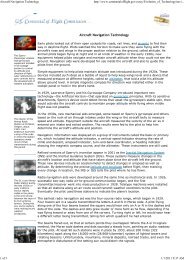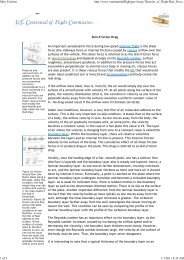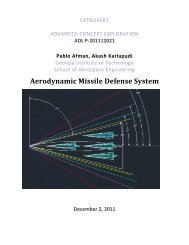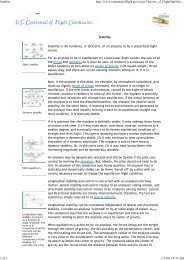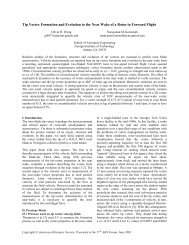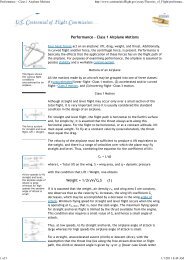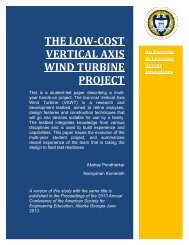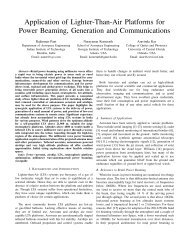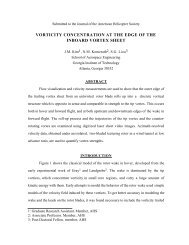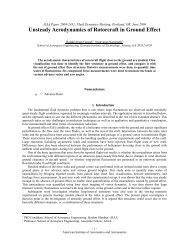Boeing-University Relations - A Review and Prospects for the Future
Boeing-University Relations - A Review and Prospects for the Future
Boeing-University Relations - A Review and Prospects for the Future
You also want an ePaper? Increase the reach of your titles
YUMPU automatically turns print PDFs into web optimized ePapers that Google loves.
such programs remain largely unrealized by industry today, though <strong>the</strong> alumni of such programsare to be found throughout industry, obviously being successful in <strong>the</strong> workplace.Communication skillsMost students now have <strong>the</strong> opportunity to participate in team exercises dem<strong>and</strong>ing technicalcommunications in multiple <strong>for</strong>ms. Presentations, group discussions, case studies <strong>and</strong> reports onlarge assignments, are all examples of such requirements. Various team competitions provideintense experiences dem<strong>and</strong>ing excellence in communication skills. However, it remains difficultto close <strong>the</strong> feedback cycle in improving communication. We have not progressed from <strong>the</strong> stageof dumping several “expert-recommended” communication strategies, to <strong>the</strong> stage of tailoringcommunications to achieve clarity of underst<strong>and</strong>ing with different audiences.What has sufferedThe dissatisfaction expressed by industry has led to some misdirected changes as well• “M<strong>and</strong>ated” courses drive severe compression of <strong>the</strong> core engineering curriculum. It istoo easy to justify spending hours on such “m<strong>and</strong>ated” topics as Ethics <strong>and</strong>Communication Skills – whereas spending time on eye-glazing derivations, <strong>and</strong> learningto solve differential equations, is not what <strong>the</strong> Real World wants. Thus, few see why itshould take longer to learn, say, Fluid Mechanics than a language – to reach <strong>the</strong> level of aconversationalist. The difficulty is that this level of competence is dangerouslyinadequate in an engineering graduate. Much more insidious is <strong>the</strong> effect on <strong>the</strong> out-ofclasslearning time available to students. For instance, one devotes a single threesemester-credithour course today to learn low-speed aerodynamics – what used to bespread across 7.5 quarter-credit hours in two courses. In this course, <strong>the</strong> student startsfrom (<strong>and</strong> re-learn) high school physics, <strong>and</strong> uses differential equations in problemsolving<strong>for</strong> <strong>the</strong> first time. In <strong>the</strong> same semester, student also takes 12 o<strong>the</strong>r credit hours.To <strong>the</strong> student, it appears logical that <strong>the</strong> 3-hour introductory <strong>for</strong>eign language course <strong>and</strong><strong>the</strong> 3-hour aerodynamics course should dem<strong>and</strong> exactly equal amounts of learning time<strong>and</strong> ef<strong>for</strong>t. The expectation that students must read textbooks has been renderedimpractical – students view this as an unreasonable expectation imposed by poorclassroom teaching. Thus we are increasingly likely (though we will strongly deny thatthis has ever happened on our watch) to graduate aerospace engineers who knowaerodynamics to <strong>the</strong> same level as <strong>the</strong>y know, say, introductory Spanish.• The clamor <strong>for</strong> better communication skills has been interpreted in many places as carteblanche to indulge in “PowerPoint Engineering” – vast amounts of time <strong>and</strong> ef<strong>for</strong>texpended on appearance <strong>and</strong> delivery as opposed to intellectual content. Senior industryprofessionals strongly caution us today that clear communication of issues requires strongunderst<strong>and</strong>ing of <strong>the</strong> fundamentals, much more than just presentation skills.• We have back-pedaled <strong>for</strong> a decade or so in <strong>the</strong> drive to instill deeper analytical abilities<strong>and</strong> more rigorous technical competence. The idea that polished presentations <strong>and</strong> “soft”sales skills equate to leadership in engineering, is perhaps costing us steeply in globalProceedings of <strong>the</strong> 2005 American Society <strong>for</strong> Engineering Education Annual Conference & ExpositionCopyright ASEE 2005, American Society <strong>for</strong> Engineering Education.



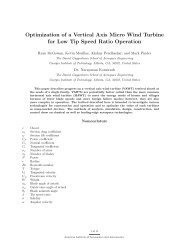
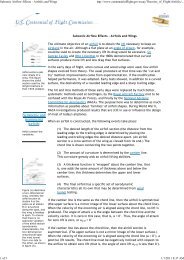
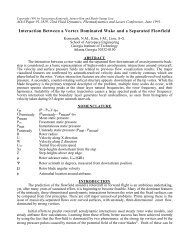
![p density of fluid, kg/m3 [Greek letter rho] V mean velocity of fluid, m ...](https://img.yumpu.com/50595898/1/184x260/p-density-of-fluid-kg-m3-greek-letter-rho-v-mean-velocity-of-fluid-m-.jpg?quality=85)
